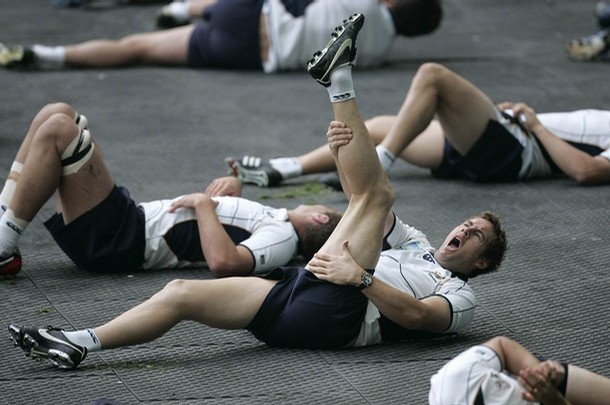 An Introduction to Recovery
An Introduction to Recovery
Below are various methods and principles that can help speed up the recovery process after a hard session in the gym or the training pitch, and help restore the body to its full physical potential ready for the next day.....
Rest and Sleep....
Sleep is one of the most powerful recovery methods available for the body. A player should be getting at least 8 hours of sleep each night. Hints to get a good nights sleep include:
> Switch Off before you go to bed - try to deal with any issues for the next day before you go to sleep so that your mind is able to relax.
> Put Your Feet Up. This may seem a strange point, but any opportunity to rest the body is beneficial.
> Try having an afternoon nap when you get home from school or work for half an hour to replenish the body before training or a gym session.
> Avoid caffeine within 3 hours of sleep
> Aromatherapy oils such as lavender are natural remedies to relax the body and can help with restlessness.
Nutrition....
The nutrition section of the website provides some good tips and recipes to aid the recovery process.
> Spread out your energy intake and eat 5 or 6 times a day
> Try to consume a source of high carbohydrates after a training session
> Maintain your protein intake to help aid the recovery and growth of muscles. Protein supplements such as protein shakes are a good source of essential carbs and proteins - see the maximuscle and mens health links at the foot of the page for more information.
> Maintain your fluid intake throughout the day. staying hydrated is one of the simplest ways to recover. Aim for 3 litres of water a day as a minimum.
Active Recovery....
1. Ice Baths
Ice baths help to rapidly reduce post exercise muscle soreness (DOMS) by helping to reduce inflammation of damaged muscle.
2. Sauna
The hot, dry atmosphere of the sauna helps the body to sweat out toxins and increases blood flow to fatigued muscles, whilst increasing the whole body temperature. Contrasting this with cold and hot showers helps to clear toxins and refreshes the nervous system.

3. Hot and Cold Shower
> Have a warm shower for 1 minute
> Move straight to a cold shower for 1 minute
> Repeat 6 times ending on a warm shower
>Direct shower head onto sore muscles but do not use on any area that has sustained a soft tissue injury.
4. Jacuzzi and Cold Shower
> Sit in the jacuzzi for 10 minutes
> Move to a cold shower for 1 minute
> Move back into the jacuzzi for 2 minutes
> Do not use on any area that has sustained a soft tissue injury.
5. Stretching
Stretching is a very simple way to recover. It increases blood flow to muscles, but more importantly helps to reduce muscle tension. Muscles become tense and inefficient through hard training and stretching helps maintain muscles at their optimal length, hence increasing efficiency and reducing the chance of injuries.

6. Massage
Massages can potentially increase blood circulation and decrease the swelling of muscles after extensive use. Massages can also have psychological benefits due to their relaxing and calming attributes.
Contact Us
Address:
12 Jabroni Drive
Sheffield
South Yorkshire
S3 8NB
Tel:
0800 33 47 92







